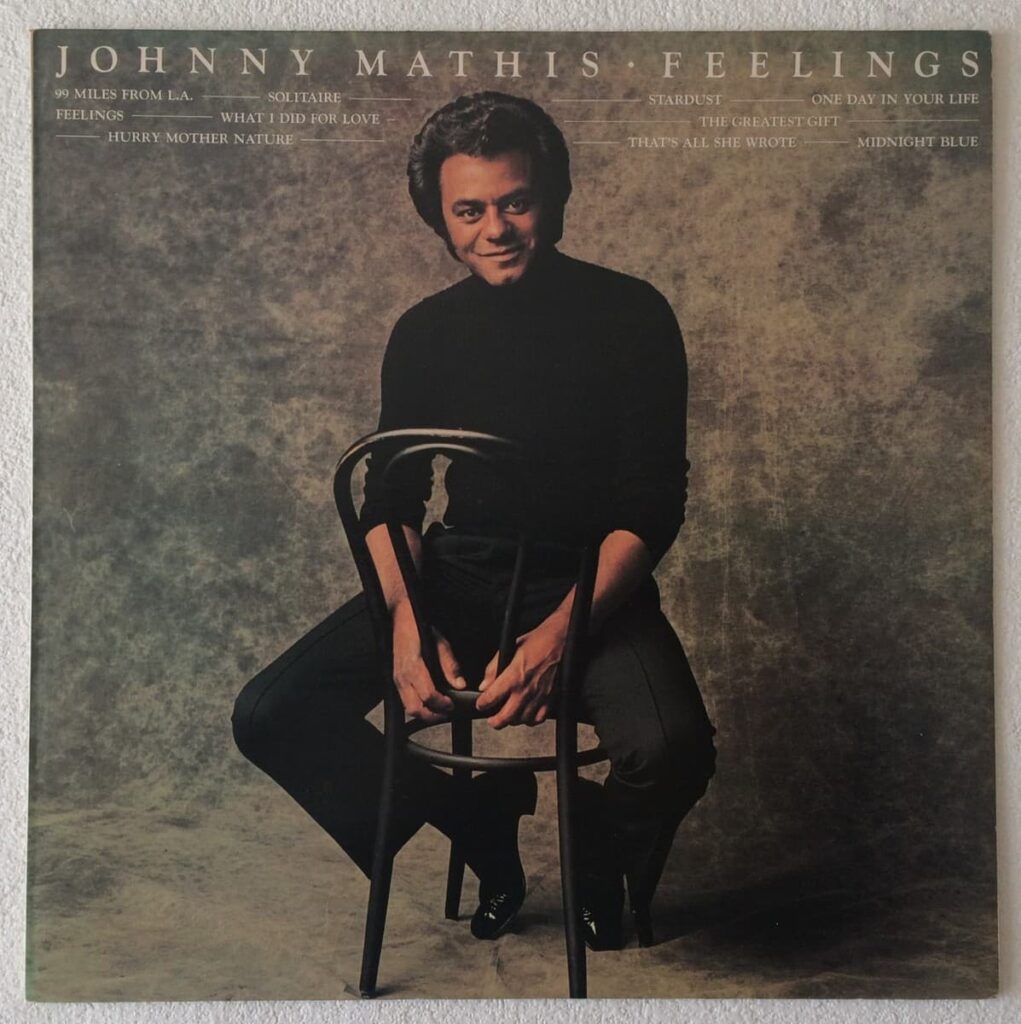
Johnny Mathis’s “Feelings”: A Timeless Echo of Love’s Fragile Heartache
In the hushed elegance of a living room, bathed in the soft glow of a lamp, a voice would often fill the air, a voice so smooth and effortlessly beautiful it could turn a simple evening into an event. That voice, of course, belonged to the incomparable Johnny Mathis. While he had already established himself as a titan of romantic ballads, his 1975 rendition of the song “Feelings” became something more—it became the very soundtrack of quiet reflection and shared melancholy. This song isn’t just about a feeling; it’s about the profound, sometimes overwhelming, sense of love, loss, and the poignant vulnerability that comes with holding a memory close to your heart.
The story of “Feelings” is a fascinating one, a journey from its Brazilian origins to becoming a global phenomenon. Originally a French-language song titled “Dis-lui” by Morris Albert with music by him and the French lyrics written by Louis Gasté, it was a sensation long before Mathis made it his own. The English lyrics, also by Morris Albert, are the ones that resonate with so many. But it was Johnny Mathis who truly elevated the song for an American audience, releasing it as a single and including it on his album, also titled “Feelings”. The song quickly climbed the charts, reaching No. 4 on the Billboard Easy Listening chart and peaking at No. 47 on the Billboard Hot 100, solidifying its place in the popular lexicon of romantic sorrow.
For many of us who remember the era, the song was everywhere—on the radio, in elevators, and playing softly in the background of dinner parties. It was a song that you didn’t just listen to; you felt it. The lyrics, with their simple yet profound lament, captured a universal heartache. “Feelings, whoa, whoa, whoa, feelings, whoa, whoa, whoa, feelings, again in my arms,” Mathis sings, his voice a perfect instrument of longing. It’s a song for the moments when a memory of a past love rushes back, when you’re suddenly overwhelmed by the bittersweet tang of what used to be. The melody, a delicate, almost tearful waltz, perfectly complements the sentiment, creating a sense of intimate sorrow.
Johnny Mathis’s genius lies in his ability to make every word count. He doesn’t simply sing the lyrics; he inhabits them. His vocal performance on “Feelings” is a masterclass in controlled emotion, a balance between heartbreak and grace. He conveys a deep sense of vulnerability without ever losing his signature composure. It’s a performance that tells a story, not of bitter regret, but of a quiet, lingering sadness—the kind that settles in the late hours of the night when you’re alone with your thoughts. The song became a touchstone for an entire generation, a musical expression of the pain of unrequited love and the ghosts of relationships past. “Feelings” is more than just a song; it’s a mood, a moment, and a beautiful, heartfelt reminder that our most profound emotions often reside in the fragile memories we carry with us.